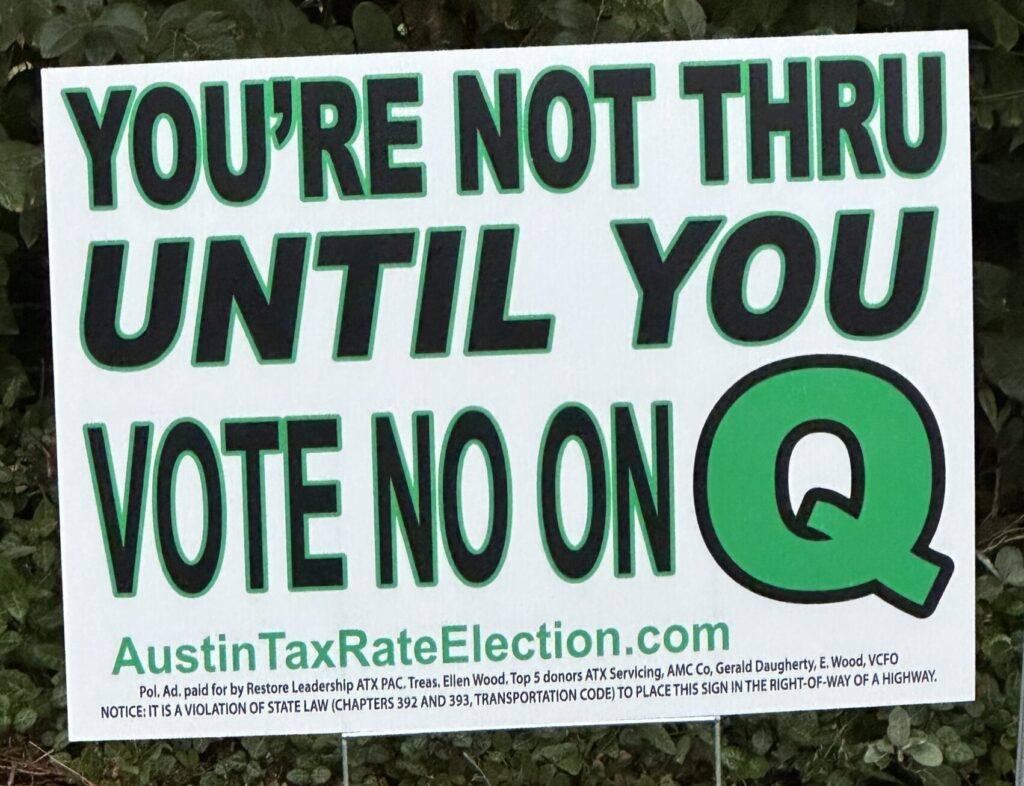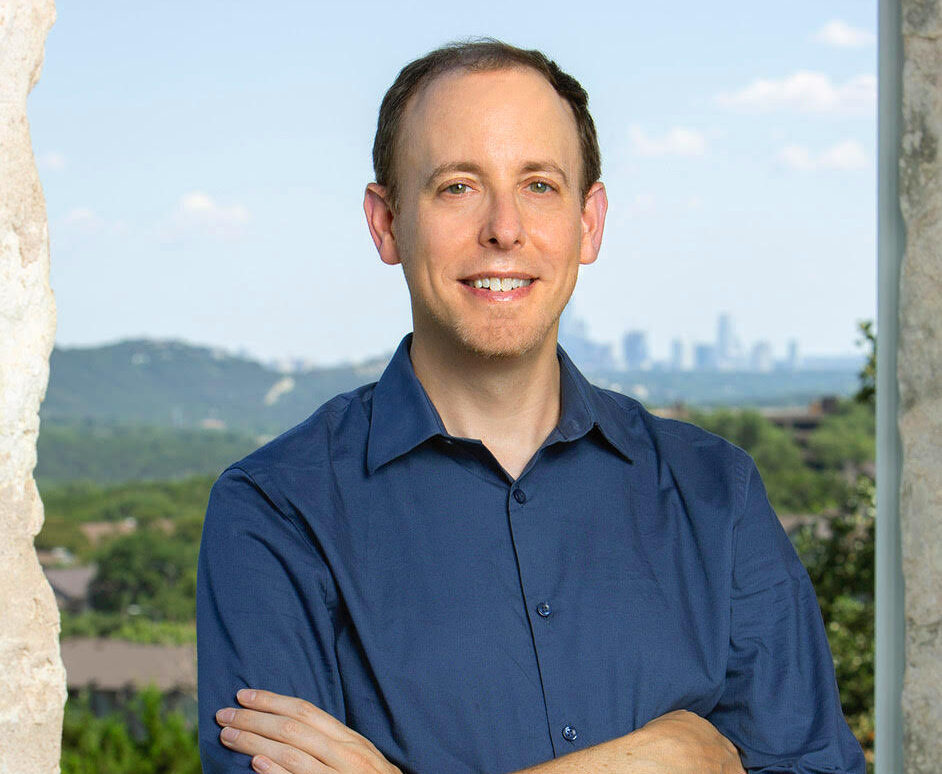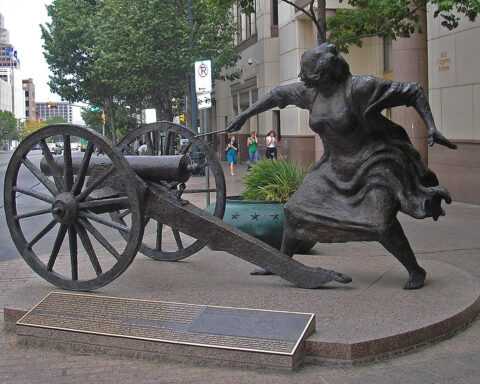![]() By Marc Duchen
By Marc Duchen
Austin voters began heading to the polls this week to vote on Proposition Q, the controversial proposal to permanently increase our local property taxes.
City council members are barred from making official statements for or against the proposition, but as a District 10 voter I’m free to tell you why I oppose it—and why rejecting it gives us a historic opportunity to change course on spending.
Raising taxes will make our affordability problem worse, particularly for the community’s most vulnerable residents. Combined with Travis County’s tax increase, higher utility rates, and other new fees, the Prop Q tax hike could raise many homeowners’ annual bills by $1,000. Renters won’t be spared: The head of the Austin Apartment Association announced that multifamily property taxes could rise by 35%, and groups like ECHO and Caritas report that the city’s homeless population will grow by nearly 10% for every $100 in rent increases.
Ironically, roughly half of the revenue that Prop Q would generate would be spent on services for Austin’s homeless population. That means Prop Q is likely to create a “vicious cycle” of rising homelessness and rising homelessness costs.
I also believe Prop Q is a glaring example of the City of Austin’s fiscal irresponsibility. Our local government maintains a structural deficit, meaning that local officials will continue asking for money from taxpayers (like the $750 million bond planned for next year) unless City Hall starts to control its spending.
On top of that, the Prop Q tax hike would hit local residents when the economy is on the brink of a recession. Tariffs are rising, Austin’s sales taxes are heading down, and the Dallas Federal Reserve shows our city growing just 1.1% over the next year. The outlook is far from rosy.
But to understand how bad Prop Q truly is, we need to dig into some math.
The City of Austin faces a $33 million shortfall for Fiscal Year 2025-26 (meaning that local authorities needed $33 million more to pay for the services they want to provide over the next 12 months). Rather than look for ways to reduce spending, my colleagues responded by setting City Hall’s budget at $6.3 billion, its highest level in history. And here’s what’s so outrageous: Prop Q would raise $110 million in taxpayer funds to cover the shortfall, $77 million more than would be necessary. Furthermore, that budgetary increase would be permanent.
I was the only council member to vote against the move. Instead, I called for City Hall to follow Houston’s lead and conduct an independent, unbiased efficiency study of local expenses. The Houston study uncovered approximately $120 million in savings, nearly four times as much as Austin’s shortfall. I’m confident we could cover our own shortfall with a similar study.
Here’s the good news: If voters reject Prop Q, our city council will have a chance to cut back on Austin’s runaway budget and consider an efficiency study like Houston’s.
I believe it’s time for local officials to stop overspending and restore trust with local residents. This election, you and your neighbors have an opportunity to send City Hall that message.








